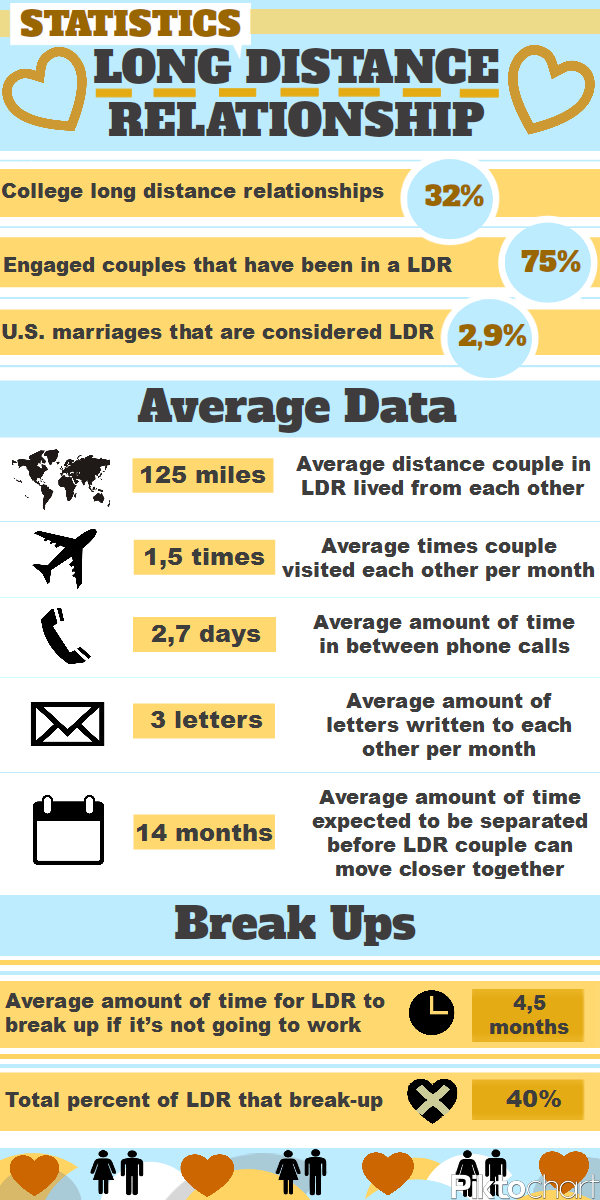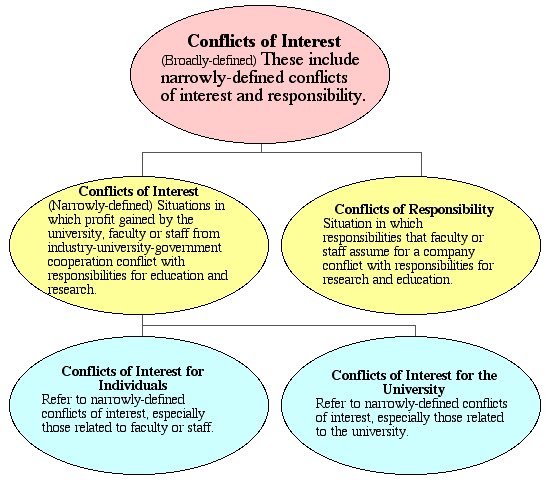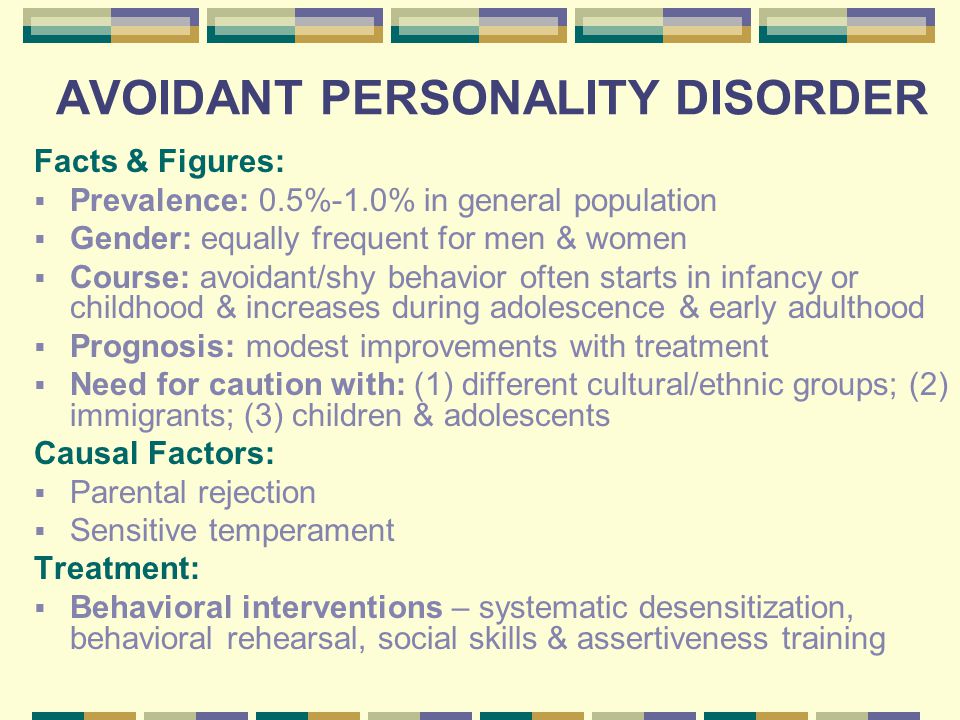How to survive a failing marriage
How to Survive in An Unhappy Marriage
Living in an unhappy marriage can be miserable. But what if it doesn’t have to be?
Marriage is an enormous commitment, one that occupies a huge part of your life. A happy marriage can mean you have a partner to share your life with and experience together all the joys and hardships that come with it.
If your married life isn’t happy, however, it’s a whole different story. Living in an unhappy marriage and finding happiness and fulfillment in your day-to-day can be challenging.
So, just what can you do if you choose to stay in your marriage even though it’s not the bliss you’d hoped for?
Being unhappy in your marriage is different from being dissatisfied with your life. Unfortunately, many people confuse the two.
Some clear hallmarks of an unhappy marriage include:
- absence of loving behavior
- lack of respect between partners
- devaluing of one another
- chronic communication problems
- unaddressed and unhealed wounds from infidelity, trauma, or loss
- clear divide in family values and priorities
- any level of verbal, emotional, or physical abuse
Unhappy marriages aren’t uncommon — just look at the most recent divorce rates. Yet for each couple that decides to divorce, several others decide not to and stick it out despite the unhappiness.
And some even make improvements to their marriage.
Things to do to stay in an unhappy marriage
Just like holding your breath allows you to swim underwater while keeping in oxygen, going into a “mode” while staying in an unhappy marriage can help you keep swimming.
You can make a practice of these three approaches to persevere:
- detachment
- focusing on healing yourself
- seeking therapy as a couple or on your own
Staying in an unhappy marriage is a very personal decision. And as long as the marriage isn’t abusive and partners are reasonably respectful of one another, it can actually work for some couples.
If abuse is involved, survival may mean separation
There are several types of abuse. If you’re surviving one of them right now, it may be helpful to know that you have support and that separation may be your wisest option, no matter what you’ve been told. Here are resources you can reach out to right now:
Here are resources you can reach out to right now:
- The United Nations Critical Incident Stress Management Unit provides help across the globe through email at [email protected].
- In the United States, you can get anonymous and confidential support from the National Domestic Violence Hotline at 800-799-7233 or 800-787-3224 (TTY).
- The National Domestic Violence Hotline also features an online chat as well as text option, by typing “START” to 88788.
If your marriage is unhappy but you’re not ready to leave, you’re not alone. People often feel like staying together is the best choice for a variety of reasons. The top three tend to be:
- children
- finances
- companionship
Here are a few ways to stay positive, stay strong, and cope in an unhappy marriage.
Detachment
One of the most painful things about an unhappy marriage is holding onto the expectation that things will change. Detachment means to emotionally withdraw from your partner. Think of it as moving into the roommate zone.
Think of it as moving into the roommate zone.
When you practice detachment, you let go of that expectation and the effect all the frustrations and annoyances have on you.
You engage in all the routine family, household, and financial issues, but no longer allow yourself to get drawn into the emotional turmoil of disagreements or heartache of unmet expectations.
One woman I counseled gave an example of detachment by saying she was no longer allowing her husband to make her cry.
“You just exist together and kind of ignore each other,” she said. The truth is, this is the state many marriages end up in without even trying.
Although this certainly isn’t the future you’d hoped for on your wedding day, detachment could protect you from distress, anxiety, and emotional overwhelm.
Get your groove back
The state of your marriage affects everything.
By detaching from feelings of unhappiness, you can start to shift your focus to things that actually do make you happy and start developing areas of your life you may have neglected.
You can rediscover and possibly redefine yourself. This could mean:
- becoming the best parent possible
- performing well at work
- developing closer friendships
- taking better care of yourself
These are just a few ways reconnect with yourself while staying in an unhappy marriage. You may try to refocus on all the things that make you feel better about the person you are.
Therapy
One of the things that can happen in any long-term relationship is the morphing from two autonomous individuals into a single-minded unit. In other words, you lose yourself as a whole person and become half of this other entity.
If the entity becomes dysfunctional, one or both halves share in this dysfunction.
The great thing about seeking couples therapy is that the professional looks at the unit and each individual part with objectivity and provides practical tools based on evidence-based research.
If your partner is unwilling to go, no problem. Seeking therapy on your own could help you restore your perspective, your peace, and a healthy version of your former autonomous self.
Seeking therapy on your own could help you restore your perspective, your peace, and a healthy version of your former autonomous self.
It’s very easy to blame the relationship — or more precisely your spouse — when you’re feeling unhappy.
But sometimes the unhappiness attributed to the marriage actually comes from other areas of life, such as:
- perceived failures
- feeling overburdened
- financial distress
- depression
- unrealized dreams
- self-identity
- life transition
In order to give your marriage a fair shake, you might consider how other things may factor in and whether the marriage itself is really the sole issue.
If upon reflection you’re certain that you really are living in an unhappy marriage, it may be time to determine the next best steps for your personal happiness and the health of your family.
Finding your way through the pain of an unhappy marriage rather than divorcing, seeking professional help, and relearning how to create your own happiness may even help you and your partner find your way back to each other.
There’s not much more attractive and intriguing than a person who’s centered, self-confident, and able to stand alone when needed.
So, if you have chosen to look for ways to stay together and live within your unhappy marriage, take heart. If you work at it, what you find on the other side of the pain could be a stronger you and possibly a renewed relationship.
How To Survive A Bad Marriage Without Divorce
Pre-marriage 101 may give you a hefty toolkit for building a healthy marriage from the outset. Do everything correctly, and you won’t be wondering how to survive a bad marriage. Without divorce as an option, however, every couple needs to learn skills for sticking it out when the relationship loses its luster.
There are times and circumstances that warrant the end of a marriage. No one should resolve to tough things out when there is abuse, for example – whether physical, verbal, emotional, or sexual. Safety is a non-negotiable.
(*If you or someone in your home is a victim of domestic abuse, please do not wait to get help. Call the National Domestic Violence Hotline at 1-800-799-SAFE [7233] and keep this number in your phone and on-hand at all times.)
Call the National Domestic Violence Hotline at 1-800-799-SAFE [7233] and keep this number in your phone and on-hand at all times.)But knowing whether or not an unhappy marriage is best resolved with a divorce is rarely so cut-and-dry. And, even in marriages threatened by behaviors like addiction and infidelity, those determined to survive together do have options.
Descriptors like good, bad, happy, unhappy are subjective qualifiers that reflect the people involved as much as their circumstances.
There are, however, characteristics and dynamics that will set a relationship up for success…or failure. And no one has been more instrumental in defining these prognosticators than John Gottman.
Knowing how to survive a bad marriage without divorce first requires a fearless examination of your marriage and what makes it “bad.”
It’s not uncommon, for example, for couples to lose their emotional connection.
They may not even be able to point to a specific time or event that caused the disconnect.
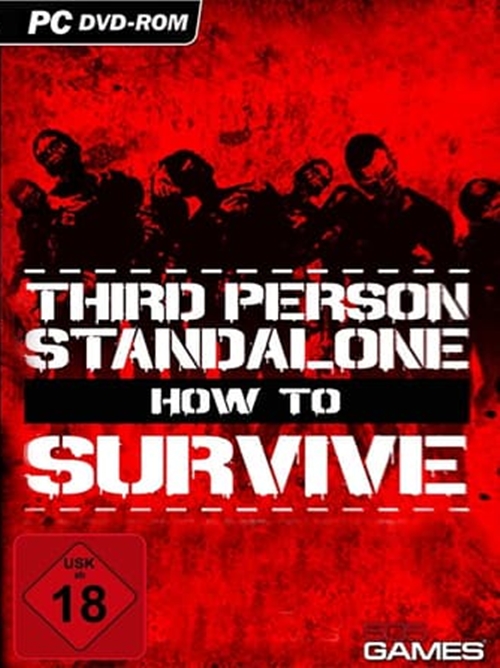 After all, the undercurrent of “life” and responsibility is deceptively powerful.
After all, the undercurrent of “life” and responsibility is deceptively powerful.As is the way with currents, couples often wake up one day and wonder not only where they are, but how they got there.
And, before they know it, they have lost their hold on those qualities whose merit lies in the vow to uphold them.
Unkindness creeps in. Sexual desire creeps out. Resentment, anger, and a mortar of other negative feelings fill the cracks opened by neglect, fatigue, and boredom.
And suddenly allies have become enemies.
The casual reader may wonder why anyone would bother trying to stay in a marriage at that point. But the truth is always that we never really know what we would do until we are in someone else’s shoes.
Some of the most common reasons for trying to make even a bad marriage work include:
- keeping the family unit intact for the children
- religious convictions
- social status that is based on the couple as a “couple”
- fear of financial insecurity
- large and complex marital assets that would prolong and complicate a divorce
- insufficient financial assets to support two homes, especially with children
- fear of being alone
- worry about disapproval from family and/or friends
- health issues with a partner, child, or dependent senior
- codependency
For all the reasons to leave, there are just as many reasons to stay.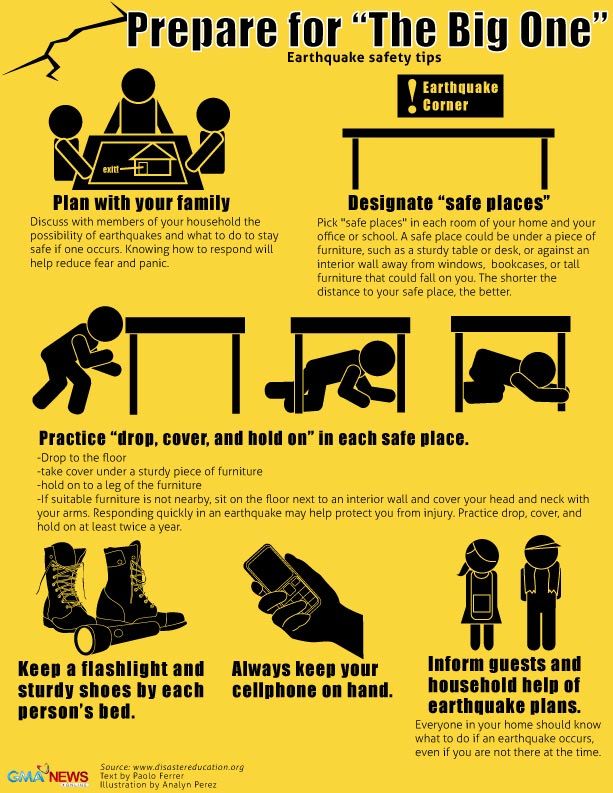 And, if you are serious about learning how to survive a bad marriage without divorce, you may be pleasantly surprised by the outcome.
And, if you are serious about learning how to survive a bad marriage without divorce, you may be pleasantly surprised by the outcome.
The first step is to
stop. Right where you are, mid-sentence, mid-negativity, mid-argument. Just. Stop.Image credit: CanvaYou don’t have to have a cheery vision for reconciliation down the road. You simply have to stop the behaviors that are giving negativity the reins to your marriage.
Stop the sarcasm. Stop the circular arguing. Stop the nasty remarks and body language.
If the silence that fills the space makes you uncomfortable, let it be. It’s a neutral, safe space. And you will have the opportunity to fill it with positivity as you learn more about surviving an unhappy marriage.
Putting the brakes on the negativity is also an essential step to the practice of detachment.
Obviously the pendulum isn’t going to swing from miserable to happy just because you decide to stay in your marriage.
By practicing detachment, however, you can restore a sense of calm in your home.
And that calm can provide a healthy space in which to re-evaluate your situation going forward.
So what does detachment look like?
As the word implies, detachment means disconnecting from the behaviors and engagements – and their outcomes – that fuel the negativity in your marriage.
You shift your focus from the maddening habits and behaviors of your spouse to your own self-care. I’m not going to focus on his socks lying on the floor because I don’t have a “stake” in the outcome. I’m not going to respond to her remarks because I am disengaging from the consequences.
Does that to survive your bad marriage without divorce you go about life as if your spouse isn’t even there?
Absolutely not.
It does mean that you turn your focus inward onto your own self-awareness and self-care.
It also means that you and your spouse maintain a “How-would-I-treat-a-stranger?” politeness with one another. You avoid personal, intimate, vulnerable conversations and focus on “civil discourse.”
You avoid personal, intimate, vulnerable conversations and focus on “civil discourse.”
How was your day? Would you like to meet at Jimmy’s baseball game? Tonight’s my night to cook, so I’ll have dinner ready at 6:30. Tonight’s your night with the kids, so I will be gone until 10.
It means you “pull back” enough that civility can fill the space that has been clouded by fights, blame, criticism, disrespect, and general lack of love.
You return to those taken-for-granted niceties of “please” and “thank you.”
You look for opportunities to be kind, gracious, polite, respectful.
In a few words, you “mind your manners.”
And, perhaps the key to all of the detachment behaviors, you forego your expectations of your spouse.
Socks on the floor may have crazy-making history for you.
But, when you detach from all the implications you normally read into the behavior, you learn not to see it. At least you don’t read into it and make assumptions about its hidden meanings. His socks? His business. You have other things to worry about.
His socks? His business. You have other things to worry about.
One of the greatest benefits of detachment is that, if you have children, they get to witness respectful behavior between their parents.
They may be well aware of the discontent at home. But observing your commitment to civility is a powerful lesson for them. It also helps to preserve (and deepen) their trust in both of you.
Detachment doesn’t mean you don’t do anything together. It’s in the best interest of everyone if you decide on at least one or two things to do together – as a couple or family – daily or weekly.
Watch a movie together with the kids. Have one meal together every day. Sit together at your children’s sporting events.
The criteria for spending time together, however, is to avoid emotion-ridden engagements.
This isn’t “casual dating.” It’s pragmatic, “just the facts,” spend-time-with-the-kids, no-sex-inside-or-outside-the-marriage engagement.
These are all ways to “engage without really engaging.” You get to “practice” being in one another’s presence without finding fault, being triggered into an argument, or even stirring up a blip of amorous inclination.
Depending on the severity of your circumstances, you and your spouse may benefit from a mini-separation. Even a couple days apart can let tempers diffuse and rational thinking flow back in.
Image credit: CanvaIt can also give you both time to reflect on the good that does exist in your marriage and how you can revitalize it. (Yes, an occasional case of “absence makes the heart grow fonder” can be good medicine.)
Especially if one or both of you are unsure about staying together, time apart can help you decide if your unhappy marriage can be saved.
Bad marriages don’t flip to good on a dime of good intention. But two simple actions can leave you a civil, safe space. It’s in this space that you’ll be able to work on yourself while preserving hope for your marriage.

- Stop the behaviors that fuel the negativity and discontent.
- And start to focus on yourself, your self-care, and how you can infuse positivity into a relationship best served – for now – with detachment.
You can learn more about navigating and surviving a bad marriage without divorce here.
I’m Dr. Karen Finn, a life and divorce coach. I help people, just like you, who are struggling with an unhappy or even miserable marriage. For immediate help, you can download your FREE copy of “Contemplating Divorce? Here’s What You Need To Know.” And if you’re interested in working with me personally, you can book an introductory 30-minute private coaching session with me.
Looking for more ideas about how to survive your bad marriage? You’ll find what you’re looking for in
Unhappy Marriage.9 reasons why we choose the wrong ones and turn marriage into a big mistake
You can not only read this article, but also listen to it. If it's more convenient for you, turn on the podcast.
If it's more convenient for you, turn on the podcast.
Any person with whom we decide to start a family is not ideal for us. It is advisable to be a little pessimistic and understand that perfection does not exist, and unhappiness is a constant. However, some couples are incompatible on some primal level, their inconsistency so profound that it lies somewhere beyond the normal frustrations and tensions of any long-term relationship. Some people just can't and shouldn't be together.
And such mistakes happen with appalling ease and regularity. Failing to marry or marrying the wrong partner is a simple yet costly mistake that affects the state, the people around you, and generations to come. It's almost a crime!
Therefore, the question of how to choose the right partner for starting a family should be considered both at the personal and at the state level, as well as issues of road safety or smoking in public places.
It becomes even sadder because the reasons for the wrong choice of a partner are common and lie on the surface. They generally fall into one of the following categories.
They generally fall into one of the following categories.
1. We do not understand ourselves
When we look for a suitable partner, our requirements for him are very vague. Something like: I want to find someone kind, funny, attractive and ready for adventure. It's not that these desires aren't true, but they're only remotely related to what we'll actually demand in the hope of being happy, or rather, not constantly unhappy.
Each of us is crazy in our own way. We are neurotic, unbalanced, immature, but we don't know all the details because no one urges us to go out of our way to find them. The primary task of lovers is to find levers, by pulling which you can bring your partner to rage. It is necessary to accelerate the manifestation of individual neuroses and understand why they occur, after what actions or words, and most importantly, what type of people causes such a reaction, and which, on the contrary, calms a person.
A good partnership is not one that occurs between two healthy people (there are not many of them on our planet).
This is what occurs between insane people who have been able, by luck or as a result of some work, to reconcile their insanities with each other.
The thought that you might not get along should tinkle anxiously next to any promising partner. The only question is where the problems are hidden: perhaps it is rage due to the fact that someone does not agree with his opinion, or he can only relax at work, or there are some difficulties in the intimate sphere. Or maybe the person will not talk in any way and will not explain what is bothering him.
All these questions could turn out to be a disaster decades later. And we must understand all about them in order to look for a person who can resist our madness. It is necessary to ask on the very first date: “What can drive you crazy?”
The problem is that we ourselves do not know very well about our neuroses. Years may pass, but there will be no situations in which they will be revealed. Before marriage, we rarely engage in interactions that expose our deepest flaws. In unstable relationships, whenever the complex side of our nature suddenly appears, we tend to blame the partner for this. As for friends, they have no motive to bring us down, forcing us to explore our real selves. They just want to have fun with us.
In unstable relationships, whenever the complex side of our nature suddenly appears, we tend to blame the partner for this. As for friends, they have no motive to bring us down, forcing us to explore our real selves. They just want to have fun with us.
Thus, we remain blind to the complex aspects of our character. When rage overtakes us alone, we do not scream, because there is no one to listen to, and therefore we do not notice the true disturbing power of our ability to rage. If we dedicate ourselves to work without a trace, because other aspects of life are not given, then we end up manically using work to feel in control of life, and explode if they try to stop us. Or suddenly our cold and detached side is revealed, which avoids intimacy and warm hugs, even if we are sincerely and deeply attached to someone.
One of the perks of living alone is having the flattering illusion that you are a very easy person to get along with. If we understand our own character so poorly, how can we know who we need to look for.

2. We don't understand other people
The problem is exacerbated by the fact that other people are also stuck at a low level of self-knowledge. They are unable to understand what is happening to them, let alone explain it to anyone.
Naturally, we try to get to know each other better. We get to know the families of partners, visit places that are dear to them, look at photos and meet their friends. It gives the feeling of homework done, but it's like launching a paper airplane and saying you can now fly the plane.
In a wiser society, potential partners will get to know each other with the help of detailed psychological tests and the assessment of a whole group of psychologists. By the year 2100, this will be normal practice. And people will wonder why it took them so long to make this decision.
We need to know the smallest details of the mental organization of the person with whom we plan to start a family: his position in relation to power, humiliation, introspection, sexual intimacy, fidelity, money, children, aging.

We need to know his psychological defense mechanisms and a hundred thousand other things. And all this cannot be learned during friendly chatter.
Due to the lack of all the above data, we cling to appearances. It seems that so much information can be gleaned from what kind of nose, chin, eyes, smile, freckles an object has ... But it's as smart as thinking that you can learn at least something about nuclear fission by looking at a photo of a nuclear power plant.
We complete the image of the beloved on the basis of only a few data. Collecting a complete idea of a person from small but eloquent details, we do the same thing with her character that we do when we look at this sketch of a face.
We do not think that this is the face of a person who has no nostrils and eyelashes, who has only a few strands of hair. Without noticing it, we fill in the missing parts. Our brains build a coherent picture from tiny visual cues, and the same thing happens when it comes to the character of a potential partner.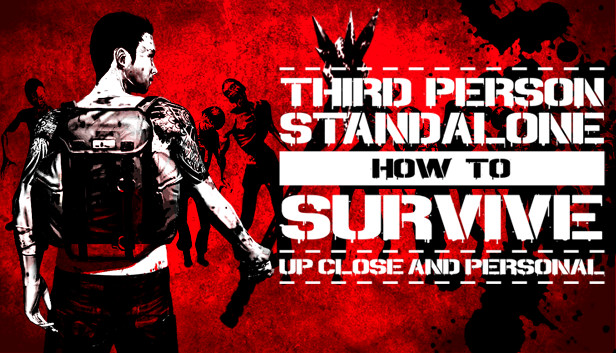 We are not even aware of what hardened artists we are.
We are not even aware of what hardened artists we are.
The level of knowledge we need to choose the right spouse is higher than our society is willing to recognize, approve and accommodate for everyday use, so deeply mismarriages are a common social practice.
3. We are not used to being happy
We believe that we are looking for happiness in love, but it is not so simple. Sometimes it seems that we are looking for such intimate relationships that can only complicate the achievement of happiness. We recreate in adult relationships some of the feelings that we experienced in childhood, when we first realized and understood what love means.
Unfortunately, the lessons we have learned have not always been straightforward. The love we learned as children was often intertwined with less pleasant feelings: a feeling of constant control, humiliation, abandonment, lack of communication - in short, suffering.
As adults, we may reject some candidates not because they are not suitable for us, but because they are too well balanced: too mature, too understanding, too reliable - and this correctness of them seems unfamiliar, alien, almost oppressive.
We choose the candidates our unconscious refers to, not because they will make us happy, but because they will make us sad in the ways we are accustomed to.
We marry wrong because we unfairly reject the "right" partners, because we do not have a healthy relationship experience and ultimately do not associate the feeling of "being loved" with a sense of satisfaction.
4. We are sure that being alone is terrible
Unbearable loneliness is not the best state of mind for a rational choice of a partner. We must come to terms with the prospect of years of loneliness for a chance to form good relationships. Otherwise, we will love the feeling that we are no longer alone than the partner who delivered us from loneliness.
Unfortunately, after a certain age, society makes loneliness dangerously unpleasant. Public life fades, couples are afraid of the independence of singles and rarely invite them to the company, a person feels like a freak when he goes to the movies alone. And sex is also very hard to get. In exchange for all the new gadgets and supposed freedoms of modern society, we got a problem: it is very difficult to sleep with someone. And the expectation that this will happen regularly and with different people will inevitably lead to disappointment after 30.
And sex is also very hard to get. In exchange for all the new gadgets and supposed freedoms of modern society, we got a problem: it is very difficult to sleep with someone. And the expectation that this will happen regularly and with different people will inevitably lead to disappointment after 30.
It would be better if the society resembled a university or a kibbutz - with common feasts, common amenities, constant parties and free sexual relations ... Then people who decide to get married would do it out of a desire to be together, and not because of an escape from negative sides of celibacy.
People admitted that when sex was only available in marriage, it led to marriages for the wrong reason - to get what was artificially limited.
People are now free to make much better choices when they get married, rather than just being driven by a desperate desire to have sex.
But there are still shortcomings in other areas of life. When a company begins to communicate only in pairs, people will look for a partner just to get rid of loneliness.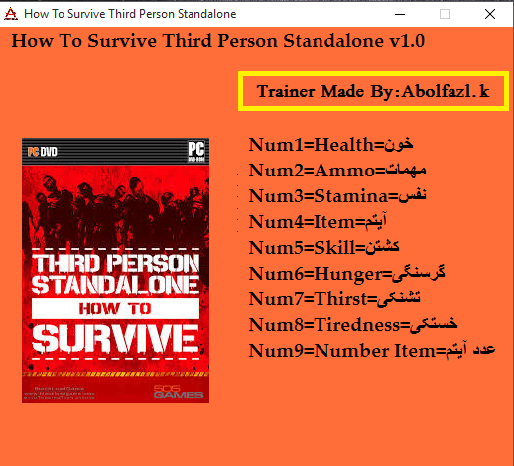 Perhaps the time has come to decisively free friendships from the dominance of couples.
Perhaps the time has come to decisively free friendships from the dominance of couples.
5. We succumb to instincts
200 years ago, marriage was an extremely rational matter: people got married to attach their piece of land to another. Cold and ruthless business, completely unrelated to the happiness of the main participants in the action. And we are still traumatized by it.
Marriage of convenience has changed to a union of instinct - a romantic marriage. He dictated that only feelings can be the only basis for an alliance. If someone fell head over heels in love, that was enough. And no more questions, feelings triumphed. Outside observers could only respectfully welcome the emergence of feelings as a condescension of the divine spirit. Parents may be horrified, but they must think that only the couple knows best.
For a long time we have collectively struggled with the consequences of hundreds of years of useless interventions based on prejudice, snobbery and lack of imagination.

So pedantic and cautious was the old institution of arranged marriage that one of the features of romantic marriage was the belief that you shouldn't think too much about why you want to get married. Analyzing this decision is unromantic. To paint on a piece of paper the pros and cons is absurd and insensitive. The most romantic thing is to propose quickly and unexpectedly, perhaps a few weeks after meeting, in a fit of enthusiasm, without giving yourself a single chance for reasoning that has led people to suffer for so many years. This recklessness seems to be a sign that the marriage can work precisely because the old kind of "security" was so dangerous to the feeling of happiness.
6. We don't have schools where they teach to choose a partner
It's time to consider the third type of marriage - a union based on psychology. In this case, a person does not create a family with a "patch of land" and is not based on a bare feeling, but on a feeling that has passed the examination, and on a mature awareness of the psychological properties of his personality and the personality of a partner.
We are currently getting married without any information. We rarely read books on the subject, spend little time with our partner’s children (if any), we don’t question married couples with prejudice, and even more so we don’t start frank conversations with divorced ones. We make marriages without digging into the reasons why they break up. Moreover, we blame everything on the stupidity and lack of imagination of partners.
In the era of marriage of convenience, when thinking about marriage, a person considered the following criteria:
- who are the partner's parents;
- how much land they own;
- how similar families are culturally.
In the era of romantic marriage, there are other signs of the correctness of the union:
- I can't stop thinking about him/her;
- I want to have sex with him/her;
- I find my partner delightful;
- I want to talk to him/her all the time.
Need a different set of criteria.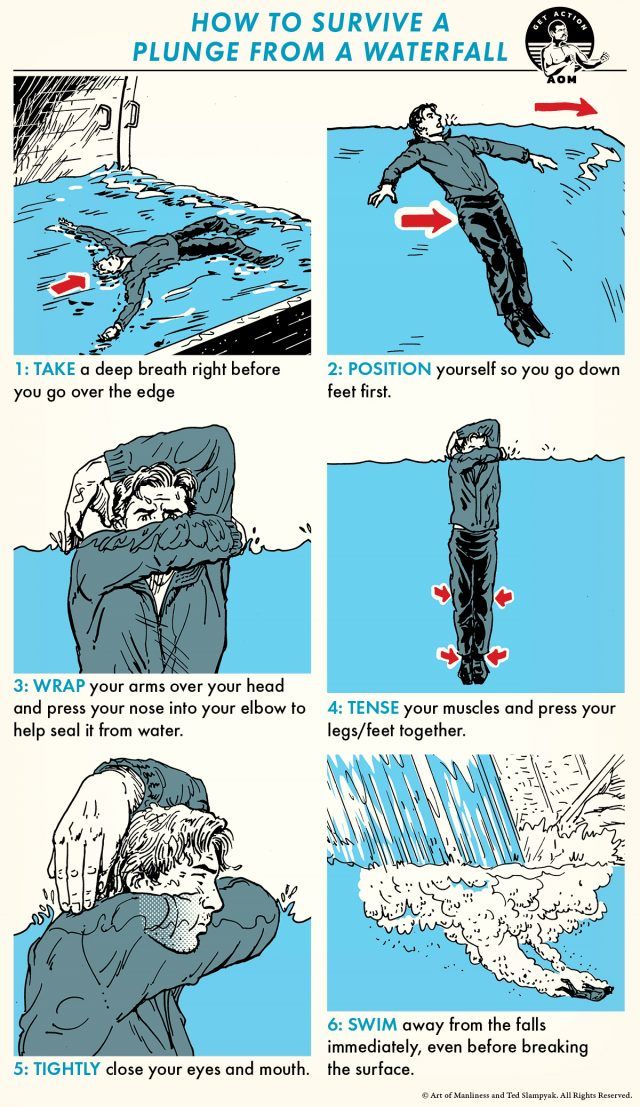 Here is what is really important to understand:
Here is what is really important to understand:
- what infuriates a partner;
- how you will raise children together;
- how you will develop together;
- whether you can remain friends.
7. We want to freeze happiness
We manifest a desperate and fatal desire to make pleasant things permanent. We want to have a car that we like, to live in a country that we enjoyed traveling in it. And we want to create a family with a person with whom we have an amazing time.
We imagine that marriage is a guarantee of the happiness that we once experienced with a partner, that it will turn the fleeting into a permanent one, that it will conserve our joy: walks in Venice, the rays of the setting sun sinking into the sea, dinner in a nice fish restaurant , a cozy cashmere jumper draped over the shoulders… We are getting married to make these moments last forever.
Unfortunately, there is no causal relationship between marriage and these kinds of feelings. They were born in Venice, the time of the day, the absence of work, the delight of dinner, the excitement of the first months of dating and the chocolate gelato just eaten. None of this resurrects marriage and does not guarantee its success.
They were born in Venice, the time of the day, the absence of work, the delight of dinner, the excitement of the first months of dating and the chocolate gelato just eaten. None of this resurrects marriage and does not guarantee its success.
It is beyond the power of marriage to maintain relationships in this wonderful period. Marriage will decisively move the relationship in a completely different direction: to your own home away from work, to two small children.
Only one ingredient unites happiness and marriage - a partner. And this ingredient may be wrong.
Impressionist painters of the 19th century were guided by the philosophy of transience, which could lead us in the right direction. They have accepted the transience of happiness as an essential feature of existence and can help us live in peace with it. Sisley's painting of a winter in France captures attractive but utterly fleeting things. The sun peeks through the twilight, and its glow momentarily makes the bare branches of the trees less harsh. Snow and gray walls create a calm harmony, the cold seems tolerable, even exciting. In a few minutes, all this will hide the night.
Snow and gray walls create a calm harmony, the cold seems tolerable, even exciting. In a few minutes, all this will hide the night.
Impressionists are interested in the fact that the things we love tend to change the most, appear for a short time and then disappear. And they capture that happiness that lasts a few minutes, but not years. In this picture, the snow looks beautiful, but it will darken.
This style of art cultivates a skill that extends far beyond art itself, the skill of noticing life's brief moments of satisfaction.
The peaks of life are usually short. Happiness does not last for many years. Learning from the Impressionists, we must appreciate the individual amazing moments of our lives when they come, but not mistakenly assume that they will last forever, and not try to conserve them in marriage.
8. We believe that we are special
The statistics are relentless, and each of us has seen many examples of terrible marriages before our eyes.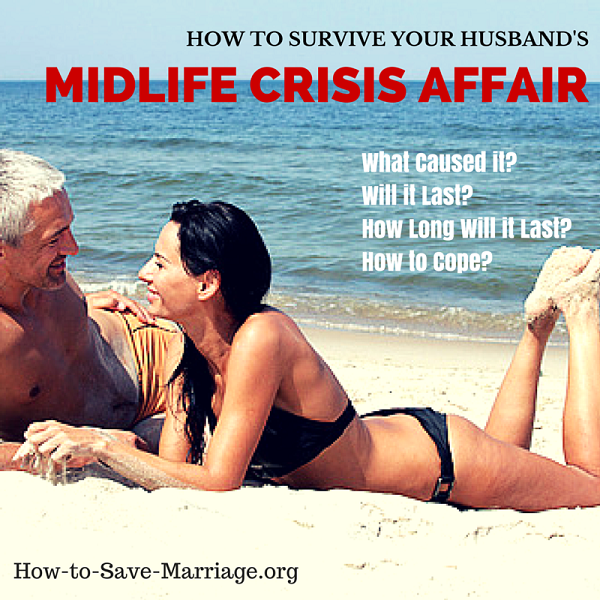 We saw acquaintances and friends who tried to break these ties. We know full well that marriage can be a big problem. And yet we hardly transfer this understanding to our lives: it seems to us that this happens to the rest, but cannot happen to us.
We saw acquaintances and friends who tried to break these ties. We know full well that marriage can be a big problem. And yet we hardly transfer this understanding to our lives: it seems to us that this happens to the rest, but cannot happen to us.
When we are in love, we feel that our chances of success are much higher. The lover feels that he has got an amazing chance - one in a million. And with such luck, marriage seems to be an impeccable undertaking.
We exclude ourselves from the generalization and cannot blame ourselves for this. But we could benefit from the stories we see regularly.
9. We want to stop thinking about love
Before starting a family, we spend quite a few years in the zone of love turbulence. We try to be with those who do not love us, we make and break alliances, we go to endless parties in the hope of finding someone, we experience excitement and bitter disappointments.
It's no wonder that at some point we want to say, "Enough!" One of the reasons why we get married and get married is to try to get rid of this all-consuming power that love has over our psyche. We've had enough of melodrama and thrills that lead nowhere. We lack the strength to deal with other tasks, and we hope that marriage will put an end to the painful reign of love over us.
We've had enough of melodrama and thrills that lead nowhere. We lack the strength to deal with other tasks, and we hope that marriage will put an end to the painful reign of love over us.
But marriage cannot and will not do this. There are just as many doubts, hopes, fears, rejections and betrayals in marriage as there are in single life. It is only outwardly that marriage looks peaceful, calm and boringly beautiful.
Preparing people for marriage is an educational task that falls on society as a whole. We stopped believing in dynastic marriages. We are beginning to see flaws in romantic marriages. It's time for marriages based on the study of psychology.
Read also 💑
- How to apply to the registry office: instructions for those who decide to get married
- Why a man does not propose and whether it is necessary to insist
- 17 questions to answer before marriage
Remarriage. Work on mistakes //Psychological newspaper
Article by P. V. Panina from the collection "Psychological assistance to Muscovites: fifteen years of experience of the Moscow service of psychological assistance to the population" (organizational model of the city-wide psychological assistance service). The project became the winner of the "Golden Psyche" competition in the "Psychological Instrument of the Year" nomination, 2019
V. Panina from the collection "Psychological assistance to Muscovites: fifteen years of experience of the Moscow service of psychological assistance to the population" (organizational model of the city-wide psychological assistance service). The project became the winner of the "Golden Psyche" competition in the "Psychological Instrument of the Year" nomination, 2019
Many want to get married once and for all, live together, raise children, and grow old together. Unfortunately, it is not always possible to save a marriage, even if you really want to. Divorce has become commonplace for many people. Even families with small children are falling apart. And yet, since people are paired beings, having “licked the wounds” of a divorce, they most often begin to build new relationships. And they would like to make a second marriage happier than the previous one, to take into account and not repeat the mistakes of the first marriage, and also not to make new irreparable mistakes.
Divorce itself is considered the second most significant and severe loss after the death of a loved one. The loss of attachments, the loss of close relationships, the loss of family is a huge loss in the life of any person. And it is important to go through these hardest feelings, to say goodbye to the former partner, so as not to drag the "trail" of past emotions into the newly created relationship.
The feelings that accompany a divorce are so unbearable for some people that they enter into a new relationship almost immediately after the breakup. As a rule, this happens due to the inability to experience the feeling of loss, as an unconscious attempt to alleviate the pain of parting. People try to replace old relationships with new ones. But, unfortunately, such a quick choice of a partner often turns out to be unsuccessful. It is very difficult in a state of separation to objectively see and evaluate the other. A new partner becomes a cure for pain, often they don’t even choose him, but start a relationship almost blindly, with the first one who at least seems a little suitable so as not to be alone. This is dangerous because after some time, in a calmer state, a person can already look more soberly at the one who is nearby, at his qualities and habits, and be surprised to find that much was not noticed before, or he was not given importance. . At this stage, many disappointments and resentments can arise. Starting a new relationship immediately after breaking up is also dangerous because, most likely, those conflicts that caused the previous union to break up will be transferred to new relationships. It often happens that a person leaves an unsatisfactory union for another, seemingly more promising relationship, hoping that this time everything will be different. But after a few years, she discovers that the new partner behaves in the same way as the previous one, and what did not suit her in the former (her) spouse annoys with renewed vigor in the new person. This is because both the choice of a partner and the building of relationships unconsciously follow the same pattern as the first time.
This is dangerous because after some time, in a calmer state, a person can already look more soberly at the one who is nearby, at his qualities and habits, and be surprised to find that much was not noticed before, or he was not given importance. . At this stage, many disappointments and resentments can arise. Starting a new relationship immediately after breaking up is also dangerous because, most likely, those conflicts that caused the previous union to break up will be transferred to new relationships. It often happens that a person leaves an unsatisfactory union for another, seemingly more promising relationship, hoping that this time everything will be different. But after a few years, she discovers that the new partner behaves in the same way as the previous one, and what did not suit her in the former (her) spouse annoys with renewed vigor in the new person. This is because both the choice of a partner and the building of relationships unconsciously follow the same pattern as the first time.:strip_icc()/pic3264284.png) And already in the second marriage, old conflicts and patterns of behavior begin to play out with renewed vigor. All repeats.
And already in the second marriage, old conflicts and patterns of behavior begin to play out with renewed vigor. All repeats.
Some people after a divorce try to build their next relationship on the principle of opposites, unconsciously hoping that this will protect them from conflict and the pain of parting. Such people choose a partner that is as different as possible from the previous one, and it happens that they themselves behave completely differently than in previous relationships. This usually also leads to difficult conflicts and great disappointment, as the person begins to take on roles that are unusual for him, which in fact he does not like and does not satisfy him. For example, it happens that a woman after an unsuccessful first marriage decides that one of the reasons for the divorce was that she devoted little time to her family, worked too much. And in her second marriage, she tries to devote herself entirely to the family - her husband and children. But, most often, after some time, she finds that her life does not bring her joy, and she feels unhappy and lonely without her favorite job. For some, the trauma of divorce is so strong that it becomes difficult to build the next relationship, it is scary to approach another, to trust him. This can manifest itself in the fact that people find an inappropriate, hard-to-reach partner, for example, start dating married (married) people with whom it is unlikely to start a family and live together, and also to create a truly emotionally close relationship. Or people try to have non-committal easy relationships, sometimes even with several partners, trying not to become attached to anyone, not to depend on anyone, and not to let anyone deep inside. After all, it is very scary to take a risk again, to make a choice, to establish a deep emotional connection with another person. I don't want to get hurt again. It's scary to get attached and relive the pain of loss. Usually the reasons for such behavior are unconscious, and people explain them to themselves by the fact that they are unlucky, or that a suitable partner does not meet in any way.
For some, the trauma of divorce is so strong that it becomes difficult to build the next relationship, it is scary to approach another, to trust him. This can manifest itself in the fact that people find an inappropriate, hard-to-reach partner, for example, start dating married (married) people with whom it is unlikely to start a family and live together, and also to create a truly emotionally close relationship. Or people try to have non-committal easy relationships, sometimes even with several partners, trying not to become attached to anyone, not to depend on anyone, and not to let anyone deep inside. After all, it is very scary to take a risk again, to make a choice, to establish a deep emotional connection with another person. I don't want to get hurt again. It's scary to get attached and relive the pain of loss. Usually the reasons for such behavior are unconscious, and people explain them to themselves by the fact that they are unlucky, or that a suitable partner does not meet in any way.
To build a successful repeat relationship, it would be good to complete 3 tasks:
- Survive all the difficult feelings associated with the end of a relationship with a former partner. And this takes time. It takes a person at least a year to part with an internal attachment to a former partner. Sometimes it takes even more time.
- Understand and accept your responsibility for the failures of the past union, in order to realize your true needs, desires, opportunities and limitations in close relationships.
- It’s good to imagine what kind of relationship you really want, and what important qualities a partner should have with whom you would like to be close.
Any experience, even negative experience, is important, it can and should be used. Having consciously lived and completed the relationship, a person understands himself better, knows which relationships satisfy him and which disappoint him, what shortcomings of the other he can turn a blind eye to, and what is difficult for him to endure in the other.
It is known that partners who have the same life values and expectations from living together have more chances to build a harmonious union. It is almost impossible to influence another person, change him, remake him for himself. And if some important things do not suit you in another, you should not hope for a miracle that something will suddenly happen, and the partner will become kinder, more responsible, calmer, stop drinking, fall in love with your child, etc. If it is impossible to accept your chosen one as he is, along with all his advantages and disadvantages, if his life priorities and values differ greatly from yours, then sooner or later unjustified expectations and hopes end in a new painful disappointment. Another difficult topic in building repeated relationships is the presence of children from previous marriages. It happens that people try to build new relationships, focusing quite strongly on the opinion of their child. You can hear, for example, such a phrase: “I am looking for a father for a child. ” Sometimes the child's choice is decisive. And if the child is negative, some people refuse the relationship. In this situation, everything is not so simple. On the one hand, it is certainly good that your child likes the new chosen one of the mother or father. But it may also be that the point is not at all in the chosen one, but in the fact that the child does not want to share his parent with anyone, because he is jealous of his mother (father), or because he secretly hopes that mom and dad will again will live together. Children who have experienced a divorce of their parents also often fear that they will lose not only the parent who left the family, but also the love of the parent who remained with them. Some, on the contrary, underestimate the presence of a chosen one (chosen one) of children from a previous marriage. And then they suddenly realize that relationships with children do not develop by themselves. Children begin to misbehave, do not obey, act up, do not want to accept a new person into their family.
” Sometimes the child's choice is decisive. And if the child is negative, some people refuse the relationship. In this situation, everything is not so simple. On the one hand, it is certainly good that your child likes the new chosen one of the mother or father. But it may also be that the point is not at all in the chosen one, but in the fact that the child does not want to share his parent with anyone, because he is jealous of his mother (father), or because he secretly hopes that mom and dad will again will live together. Children who have experienced a divorce of their parents also often fear that they will lose not only the parent who left the family, but also the love of the parent who remained with them. Some, on the contrary, underestimate the presence of a chosen one (chosen one) of children from a previous marriage. And then they suddenly realize that relationships with children do not develop by themselves. Children begin to misbehave, do not obey, act up, do not want to accept a new person into their family. This can be especially offensive when the new partner treats the child well.
This can be especially offensive when the new partner treats the child well.
We often want to think that by creating another family, we will find a new father or a new mother for the child, and this will make him happy. It is important to remember that divorce is a big trauma for a child. And unconsciously, almost every child dreams of reuniting the parental couple. And the second "father", the second "mother" is always a source of jealousy, even if the child's parents broke up through no fault of his (her) fault. Many children perceive a new person incredulously, and some sharply negatively. Even if the son or daughter likes the new chosen one of the parent, the child needs time to adapt to the new environment, get used to another family member, and begin to trust him. This has to be dealt with and be patient. The child is not to blame that the first family of his parents broke up. Even more difficult are situations where both spouses have children from previous marriages. Even siblings always have jealousy and struggle for parental love, and the relationship of children from first marriages is rarely friendly and harmonious, often these relationships do not add up at all. Also, many problems in the relationship of children arise when a couple has a common child. Often parents experience a great illusion that children from different marriages will live peacefully, as one family and love each other. Unfortunately, there are never any conflicts here. Children from first marriages, especially those living together, are always a big stress. And spouses need to be ready to make a lot of efforts to smooth out conflicts between them, and make the family environment more calm and pleasant for all family members.
Also, many problems in the relationship of children arise when a couple has a common child. Often parents experience a great illusion that children from different marriages will live peacefully, as one family and love each other. Unfortunately, there are never any conflicts here. Children from first marriages, especially those living together, are always a big stress. And spouses need to be ready to make a lot of efforts to smooth out conflicts between them, and make the family environment more calm and pleasant for all family members.
To make it easier for a family to survive the arrival of a new member in it, it may be useful:
Gradually introduce a new person into the family, and into the life of the child. Everyone needs time to get used to each other. This often helps to avoid sharply negative manifestations in children, and smooths out intra-family conflicts.
Try to understand and not judge the child because he may have negative feelings towards a new person. Do not demand love from a child for a new partner. Try to figure out what is behind his feelings and help the child experience them. Constantly explain and show the child that you love him, and from the arrival of a new member in your family, neither you nor your ex-spouse will love the child less. Understand that a new person, most likely, will not replace a mother or father for a child. But at the same time, the new family member has the opportunity to build a good, but their own special relationship with the child.
Do not demand love from a child for a new partner. Try to figure out what is behind his feelings and help the child experience them. Constantly explain and show the child that you love him, and from the arrival of a new member in your family, neither you nor your ex-spouse will love the child less. Understand that a new person, most likely, will not replace a mother or father for a child. But at the same time, the new family member has the opportunity to build a good, but their own special relationship with the child.
Remember that an adult is always responsible for the relationship with the child . It is important not to shift the responsibility for the relationship with the child to the child himself. It happens that a new family member has to deal with a child's negative attitude towards himself. And you need to be mature enough to endure these feelings and continue to make efforts to build a relationship with the child. In such situations, it helps to understand what is behind this negativity in a child, and a sincere desire to create a good relationship.